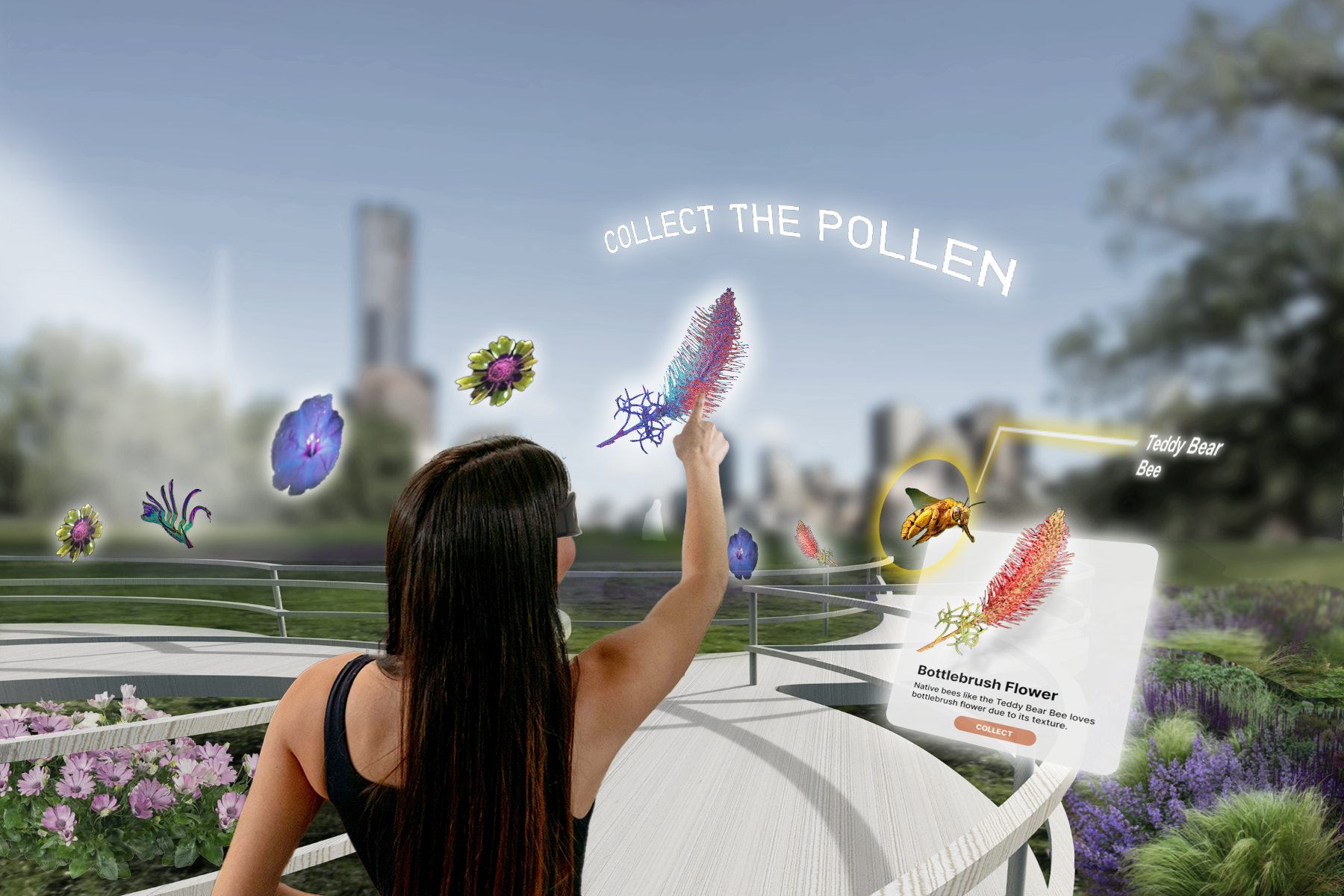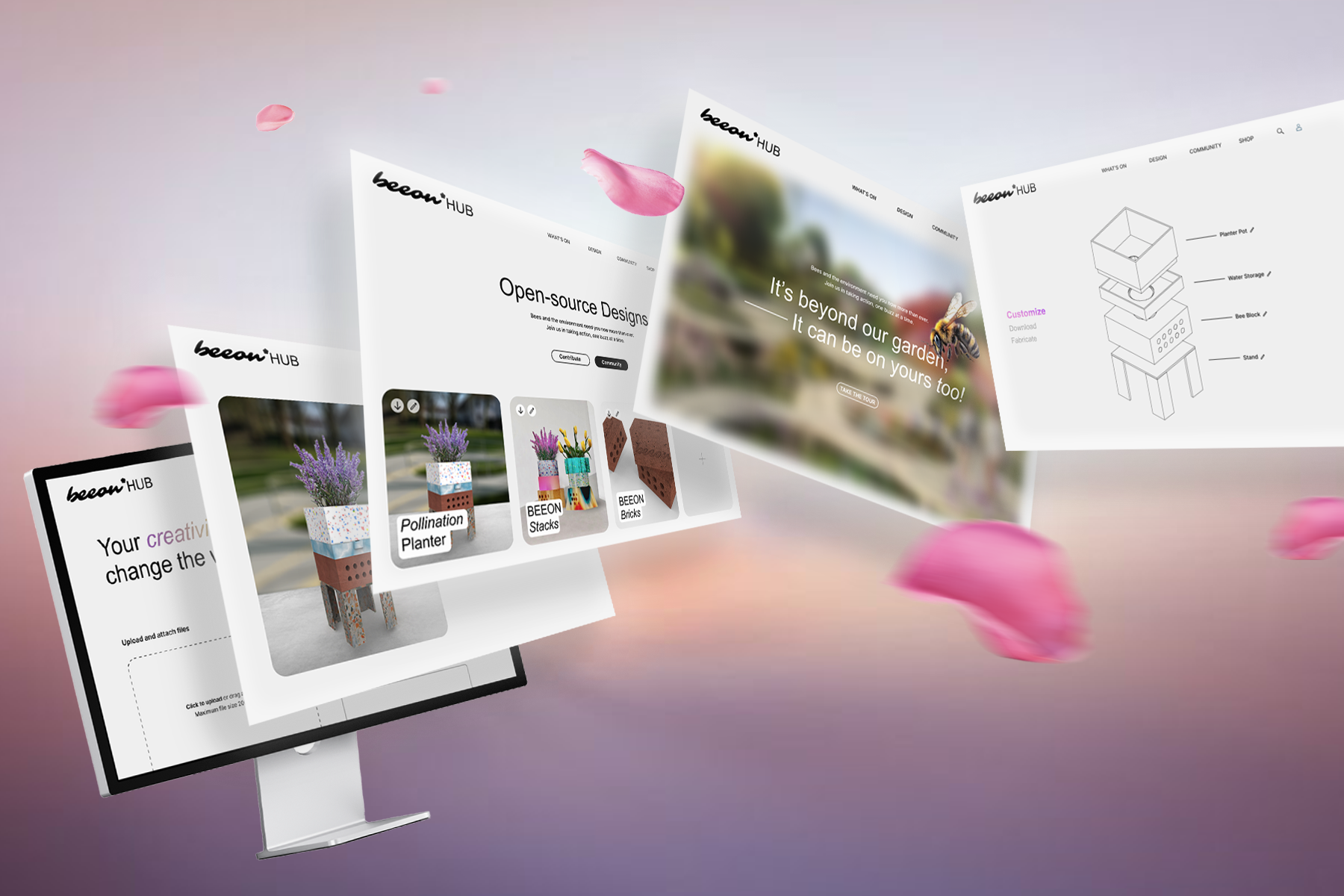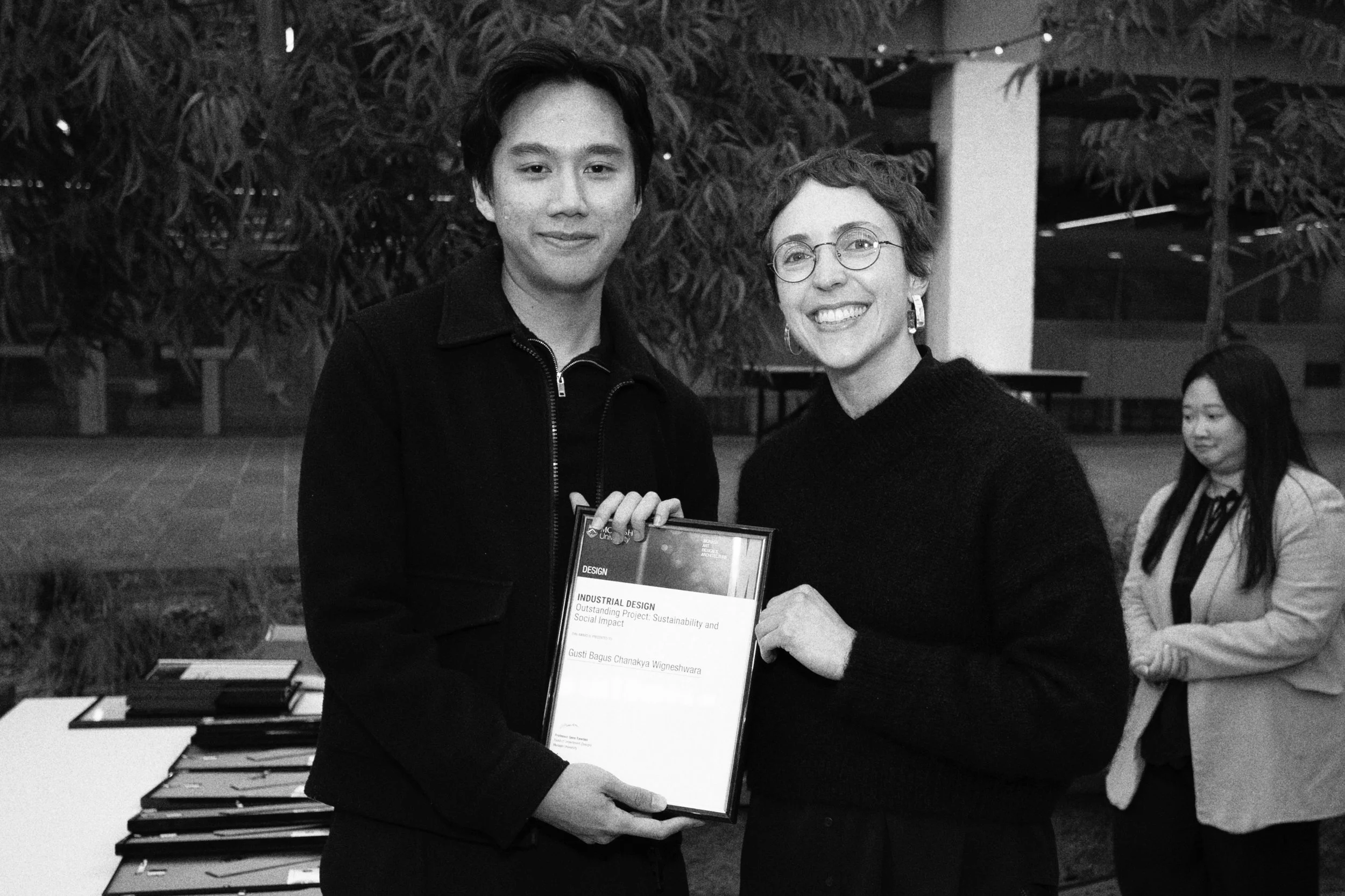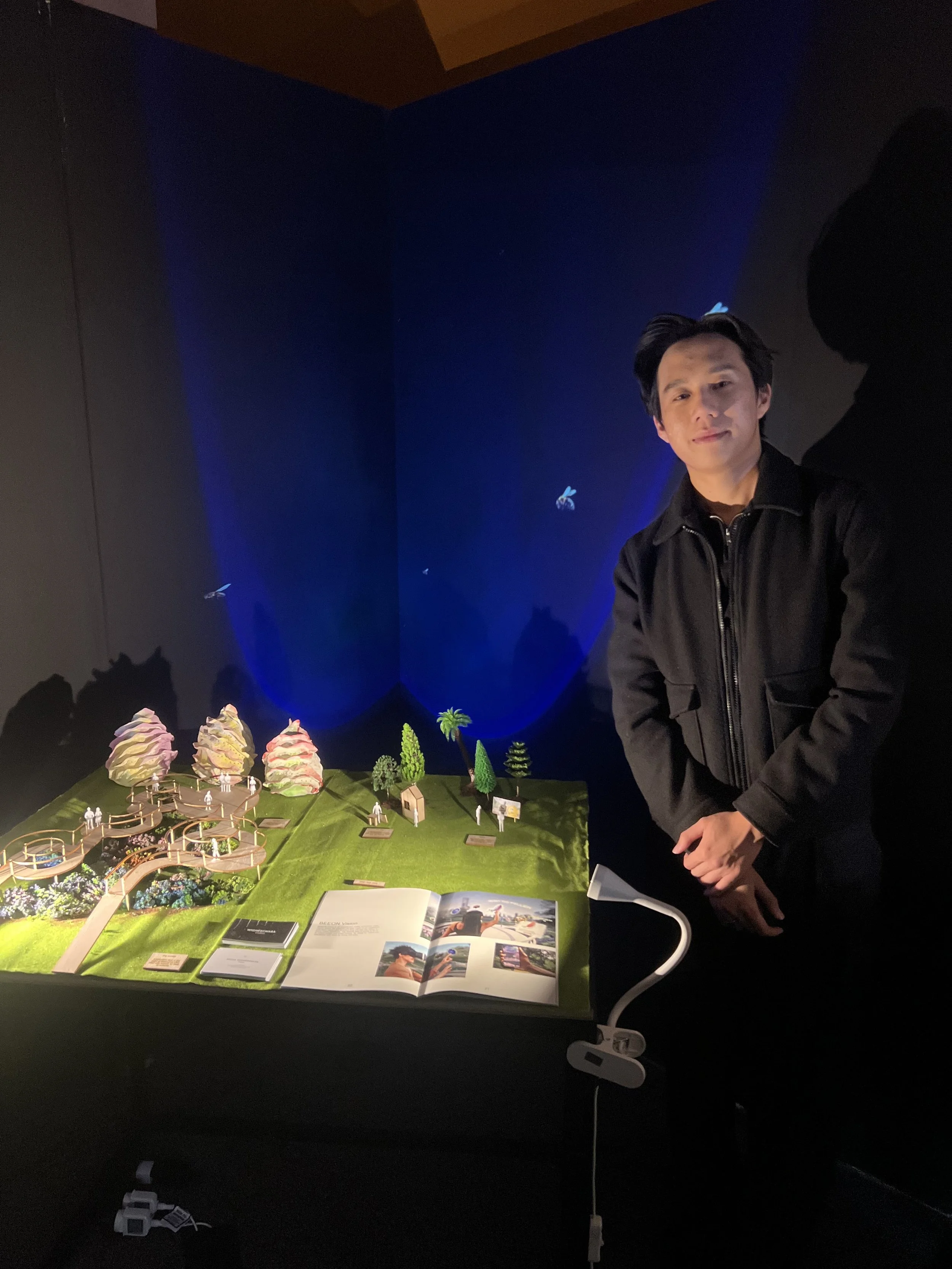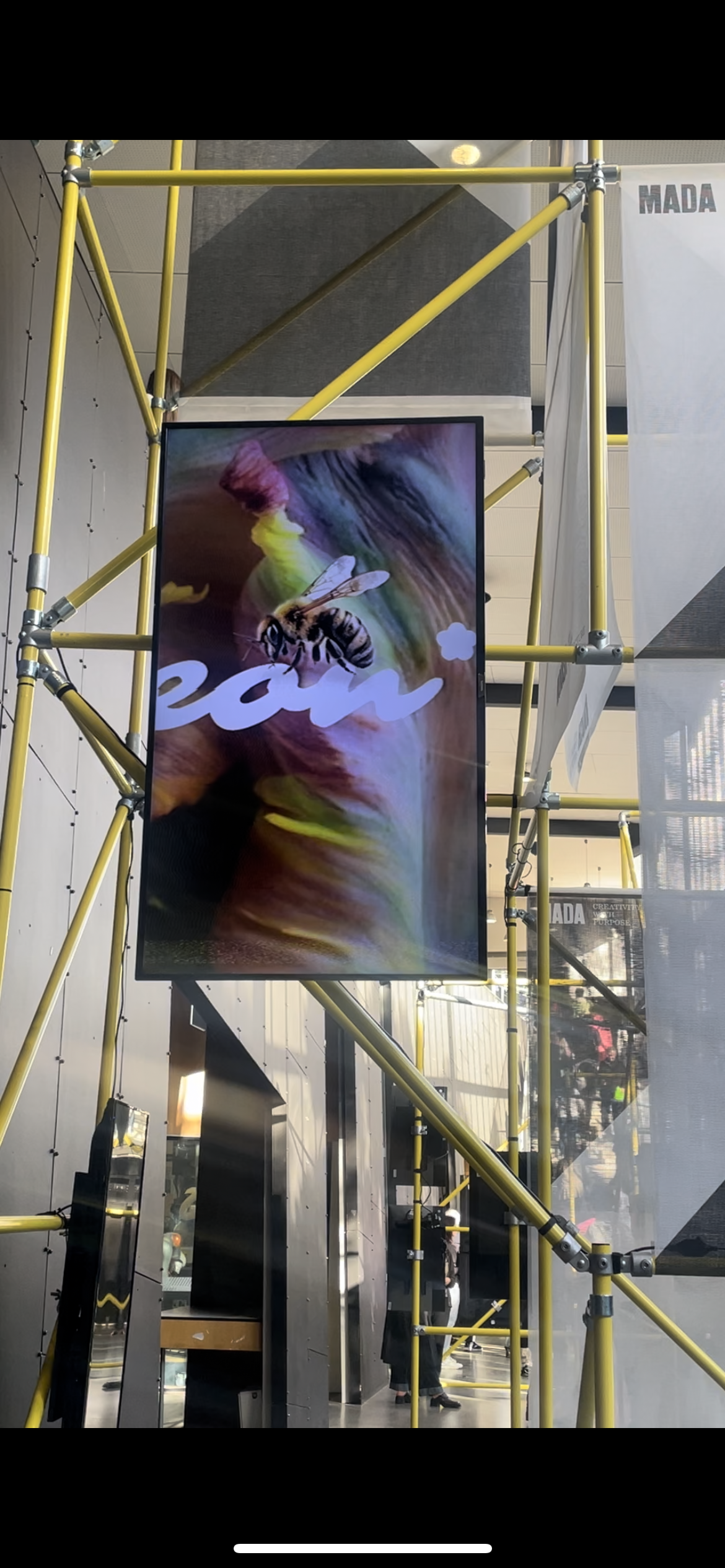
‘BEEON’ - It’s Beekeeping, and Beeyond!
Bees, our planet’s most vital pollinators, are facing alarming population declines due to climate change, habitat loss, and human activity—threatening biodiversity, global food security, and the resilience of our ecosystems. Despite their importance, the urgency of this crisis often fails to translate into collective action, with public awareness remaining fragmented and disconnected from tangible solutions. Beeon addresses this gap by merging design, education, and community engagement into an immersive platform that transforms abstract environmental issues into lived, shared experiences. Through interactive installations, urban interventions, and accessible resources, Beeon fosters a sense of responsibility and connection, empowering communities to protect and restore bee populations while reimagining our role in sustaining the natural systems that sustain us.
The Beeon sculpture doubles as a functional nesting unit for native solitary bees, designed with modular cavities and tube inserts that replicate the dry, hollow stems and sheltered burrows these species rely on for reproduction. Constructed from durable, bee-safe materials that regulate internal temperature and protect against predators, each cavity is calibrated in size and depth to accommodate a variety of native bee species. Its flower-like form is not merely aesthetic, it symbolises the interdependence between pollinators and plants while optimising sun exposure and rain protection, ensuring a habitat that is both ecologically functional and visually resonant within its urban setting.
By walking through the sculpture’s interior pathways, visitors become part of the habitat’s ecosystem—physically immersed in a space that celebrates and shelters its tiny residents.
The Beeon Garden, located in Melbourne’s Alexandra Gardens, is an immersive pollinator-friendly landscape designed to connect people and bees within a shared urban environment. Organised into distinct zones, it features curated plantings of seasonal and native flowering species to provide year-round forage, raised observation platforms that offer elevated views of both the sculpture and surrounding blooms, and accessible ramps to ensure an inclusive experience for all visitors. Public touchpoints are woven throughout the space, ranging from informational plaques and QR codes linking to open-source resources, to community planting days and guided walks, ensuring that every encounter offers an opportunity to learn and contribute.
Around the Beeon Garden, an augmented reality (AR) experience invites visitors to step into the world of a bee, offering a rare perspective on how pollinators perceive their surroundings. Through a “collect the pollen” interactive game accessed via smartphones or AR glasses, participants navigate the garden in bee vision—where ultraviolet patterns guide them to flowers, and time-limited challenges mimic the urgency of real pollination. This playful yet educational layer transforms the space into a multisensory learning environment, deepening appreciation for the intricate role bees play in sustaining plant life.
At the heart of Beeon’s outreach is BOBEE, a friendly mascot designed to personify the project’s mission and make bee conservation more accessible—particularly for younger audiences. By giving the cause a relatable character, BOBEE simplifies complex ecological concepts into engaging narratives and activities, turning awareness into emotional connection. Beyond education, BOBEE’s presence strengthens Beeon’s commercial appeal, enabling the campaign to extend into merchandise, media, and events that keep the message alive long after a visitor leaves the garden.
The Beeon Hub is the project’s open-source platform, designed to empower individuals and communities to create their own pollinator-friendly installations. By providing free access to digital design files, assembly guides, and educational resources, the Hub removes barriers to participation and encourages local adaptation of the concept. Central to its sustainability ethos, the Beeon Hub connects users with nearby sustainable fabrication labs and makerspaces, enabling them to source parts from recycled or responsibly sourced materials, reducing the carbon footprint of production. This decentralised, community-driven approach not only broadens Beeon’s reach but also fosters a culture of shared responsibility—where protecting pollinators becomes a collaborative, creative, and locally grounded act.
Beeon stands as the culmination of my capstone final year project—a multidisciplinary design initiative that weaves together art, education, and community action to confront the urgent decline of pollinators. From its functional sculpture and pollinator garden to its AR “bee’s-eye” experience, educational mascot BOBEE, and open-source Hub, Beeon turns awareness into action, giving people accessible ways to connect with and protect bees. Its debut at MADA Now 2024, where it was awarded for Sustainability and Social Impact, affirmed not only the project’s creative and technical ambitions but also its ability to spark meaningful change. At its heart, Beeon is more than a design—it is an invitation for all of us to take part in shaping a future where pollinators, and the ecosystems they sustain, can thrive.





